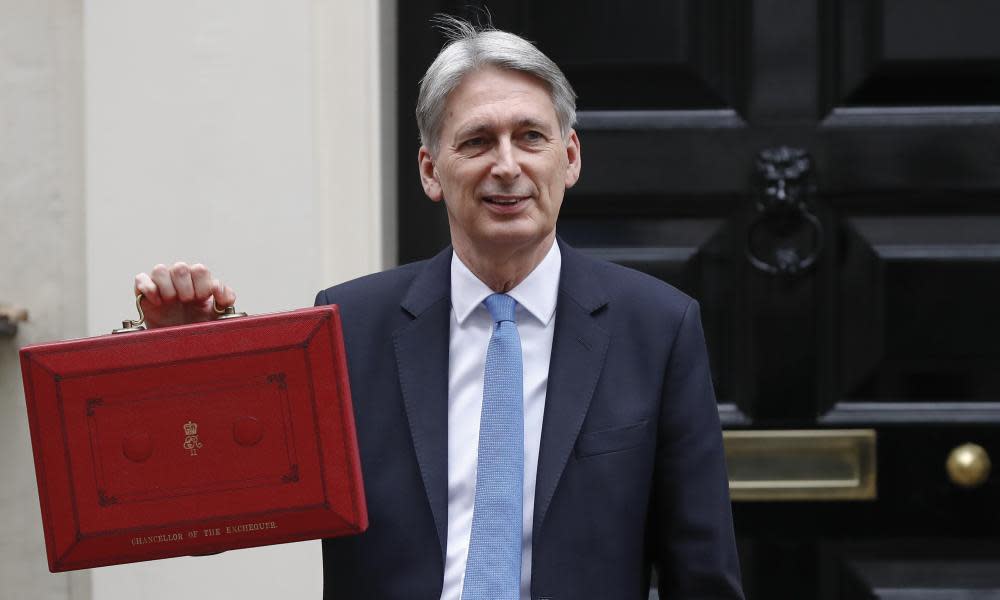Why is the government waging a war against disabled people? | Peter Beresford

A recent United Nations report on its inspection into the UK’s record on disabled people’s rights was described as a “17-page-long catalogue of shame” by one commentator, who wrote:
Over the past seven years, cuts to benefits, social care, the legal system and local authority funding have effectively put decades of slow, painful progress into reverse.
Cuts in social care funding have made a mockery of would-be progressive policies on personal budgets and direct payments. Cuts in day services and restrictions on access to freedom passes have marooned many disabled people behind their four walls.
We have also seen disabled students’ allowances cut; a reduction in funding of Access To Work, which made it possible for many disabled people to get into and stay in work; and greatly increased reporting of disability hate crime – including incidents against disabled children.
The chancellor, Philip Hammond, in his autumn budget, made no mention of social care; the Care and Support Alliance saying that the “government failed to recognise the immediate crisis in social care”.
The government’s latest proposals delaying a promised green paper on social care until next year don’t include any disabled people or organisations in the team of “expert advisers”.
Disabled people of working age won’t be addressed in the green paper and we can get some idea of what’s in ministerial minds from a recent social care debate in the House of Commons. Social care minister Jackie Doyle-Price repeatedly emphasised the part yet more welfare reform will play in the government’s future thinking for this group.
Over the past seven years, the government has not so much increasingly failed to secure disability rights under the UN convention on the rights of persons with disabilities as appeared to attack those very rights.
Successive governments have denied this, but with suggestions that disabled people have died shortly after being identified as fit for work, or killed or contemplated killing themselves after the withdrawal of welfare benefits, it is difficult to see this as merely a matter of misguided policy or economic exigencies.
It is becoming increasingly difficult not to associate such catastrophic policies with something deeper, something more visceral. We have to ask why does this government and its recent predecessors seem so bent on harassing disabled people? Is there something about us they just can’t stomach?
The present government particularly has made cuts to social care and reforms to welfare benefits that – without exaggeration – can be said to have damaged and spoiled the lives of millions. We know that thousands of disabled people live in fear of the brown envelope through the door; that some have even starved to death after their benefits have been cut.
The failure of policymakers is that so many of us still face appalling and increasing barriers to employment, education, training, family and social life.
These are not isolated cases. They affect all groups: people with learning difficulties; people who are dying; those with major physical and sensory impairments; with painful and enervating long term conditions; with the most severe mental health problems.
Modern governments talk a lot about “evidence-based policy”, but evidence has highlighted the cruel, draconian effects of these social polices.
We need to look way beyond ideological discussions about whether or not policy is “fit for purpose”. Instead, we must ask where this apparent underlying loathing of large groups of people comes from. What is there about us as disabled people that prompts such extreme measures?
Of course we know that governments like ours clutch at a different rationale. Their attacks are not on disabled people per se, they say, but those pretending to be disabled, the “shirking” rather than the “striving” disabled people.
Sadly, it is disabled people indiscriminately – and those close to them – who are suffering appallingly through these measures, not some imagined cohort of con-people or impersonators.
The current direction of travel of social care and welfare reform doesn’t merely represent harsh policy or even reactionary ideology. Instead it is a deliberately prejudiced, vicious attack on a significant minority of the population.
Governments and policymakers haven’t caught up with the reality that medical advances and social and cultural changes mean that the nature of who we are as a population has changed. There are now many more disabled people. Making our lives increasingly difficult may kill some of us, but it won’t seriously change the maths.
The failure of policymakers is that so many disabled people still face appalling and increasing barriers to employment, education, training, family and social life. It’s not getting rid of us that welfare reform should be about, but about challenging and ending these attitudinal, institutional and cultural barriers. And to do this, this government needs to start very firmly with challenging itself and its ministers.
Peter Beresford is emeritus professor of social policy at Brunel University London, professor of citizen participation at Essex University and co-chair of Shaping Our Lives
Join the Social Care Network for comment, analysis and job opportunities, direct to your inbox. Follow us on Twitter (@GdnSocialCare) and like us on Facebook. If you have an idea for a blog, read our guidelines and email your pitch to us at socialcare@theguardian.com.
If you’re looking for a social care job or need to recruit staff, visit Guardian Jobs.

 Yahoo News
Yahoo News 
